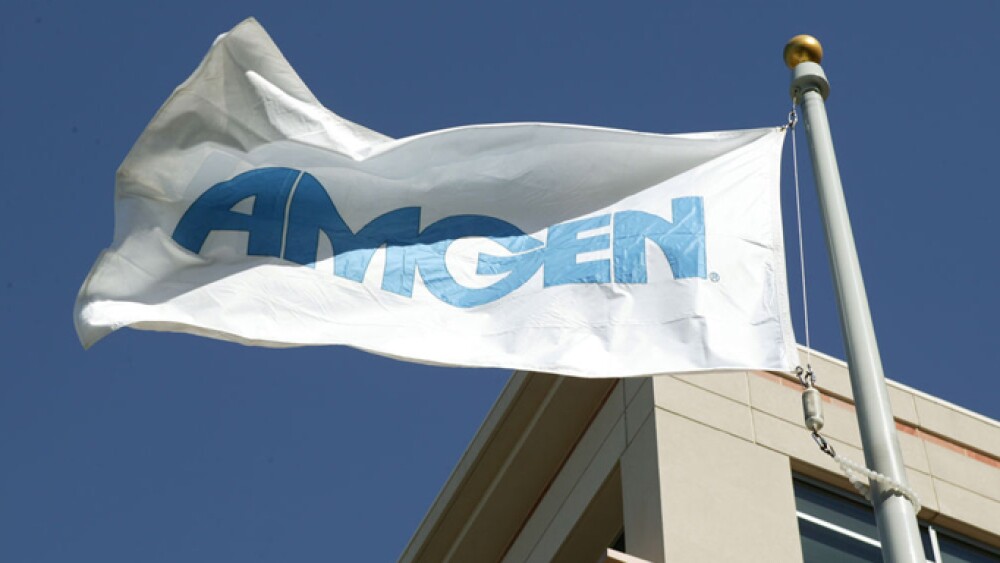September 20, 2016
By Alex Keown, BioSpace.com Breaking News Staff
THOUSAND OAKS, Calf. – Shares of Amgen are on the rise this morning following the company’s announcement that its anti-cholesterol drug Repatha met its endpoints in a Phase III coronary artery disease (CAD) trial.
Amgen’s GLAGOV study was designed to evaluate the effect of Repatha on the change in burden of CAD in 968 patients undergoing cardiac catheterization and on optimized background statin therapy. Repatha (evolocumab) is a PCSK9 (proprotein convertase subtilisin/kexin type 9) inhibitor. Repatha binds to PCSK9 and inhibits circulating PCSK9 from binding to the low-density lipoprotein (LDL) receptor. That prevents PCSK9-mediated LDLR degradation and allows LDLR to recycle back to the liver cell surface. By inhibiting the binding of PCSK9 to LDLR, Repatha increases the number of LDLRs available to clear LDL from the blood, thereby lowering LDL-C levels, according to the company. Secondary endpoints in the trial included PAV regression, change in total atheroma volume (TAV) from baseline to week 78 and regression in TAV.
Repatha was approved by the U.S. Food and Drug Administration last year to treat two rare genetic diseases known for high LDL-C, as well as patients who have atherosclerotic CV disease. In Phase III trials for Repatha prior to its approval, the drug lowered the bad cholesterol by about 60 percent and decreased the rate of cardiovascular events, including heart attack, heart failure leading to hospitalization and death, by approximately 50 percent.
“We are pleased with the positive results of this landmark study showing that Repatha modifies the underlying process of atherosclerosis,” Sean Harper, executive vice president of Research and Development at Amgen, said in a statement. “We strongly believe in the potential of Repatha to aid in the fight against cardiovascular disease, and we are excited to share these data with the scientific community at the AHA Scientific Sessions.”
In the U.S., there are approximately 11 million people with atherosclerotic cardiovascular disease (ASCVD) and/or familial hypercholesterolemia (FH) who have uncontrolled levels of low-density lipoprotein (LDL-C) over 70 mg/dL, despite treatment with statins or other cholesterol-lowering therapies. Repatha could be a strong seller for treatment of CAD in Europe. More than 60 percent of high-risk patients in Europe are still unable to adequately lower their LDL-C levels with statins or other currently approved lipid-lowering agents, the company said.
“Atherosclerosis is the major underlying cause of cardiovascular disease, which remains the leading cause of death worldwide. Now one year after the FDA approved Repatha, nearly two-thirds of patients prescribed Repatha are still being denied access. We are concerned that many patients with uncontrolled LDL cholesterol levels continue to face challenges in accessing a medicine that we now know has a positive impact on plaque burden,” Harper said.
Amgen will announce detailed results from the Phase III study in November during the American Heart Association Scientific Sessions.
No new safety concerns were identified in the GLAGOV trial. The incidence of treatment-emergent adverse events was comparable among both groups, the company said.
Shares of Amgen are trading at $173.60 as of 10:57 a.m.





